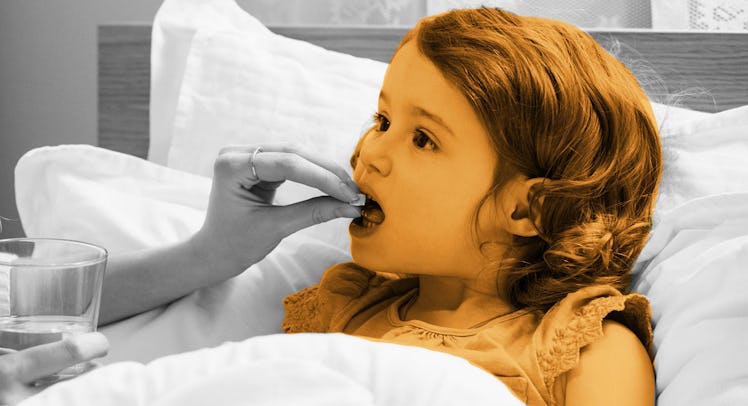Should Parents Use Melatonin To Help Children Sleep?
Natural supplements are problematic on many fronts, so it’s better for a parent to look at underlying issues before grabbing over the counter herbal remedies.

When a child isn’t sleeping, parents become desperate for solutions. But the solutions offered to parents struggling with a sleepless child can range from the tried and true, like white noise machines, to supposed miracle supplements. Sure, some of those supplements, like melatonin, have been around for a long time and appear to be safe and natural. But that doesn’t mean that parents should be looking for a solution from a bottle, particularly when so little is known about what’s actually in the bottle.
“Over-the-counter products aren’t regulated in the same way, so the dosage can be very different than what it says on the box,” explains American Academy of Pediatrics spokesperson Dr. Corinn Cross. “Some of these products have been found to have ten times the amount than what was on the label. That’s why pediatricians get a little nervous about herbal supplements for children.”
So it’s not that supplements like melatonin don’t work. In fact, melatonin is produced by the body to promote sleep in the first place. The problem is that over-the-counter supplements are not precise in their dosing. They change from pill to pill and from lot to lot. Doctors use a child’s size to determine the amount of medicine they should receive. That’s why there are children’s versions of popular over-the-counter painkillers. And any parent who has read a child’s ibuprofen label knows how detailed the dosages are. That kind of accuracy is only possible when the amount of medication in a dose is precisely controlled. Throw out that precision and there is literally no way of telling how much you’re giving a kid.
Cross stresses that parents who insist on trying supplements should seek guidance from a pediatrician. “It shouldn’t be something that parents really take on themselves even though it’s over-the-counter,” Cross says. That’s not simply because of the dosage issues either. “A lot of parents don’t really realize that a lot of medications that we have that are prescription often came from natural products to begin with. So just because a product is natural doesn’t mean that it’s safe.” Cross adds. “Think about cyanide or arsenic. These are natural things, but not things you want to consume.”
While she is sympathetic to parental desperation, Cross notes that looking for easy answers to sleep problems is not the best way to go about fixing them. That’s because children who are having trouble with sleep are likely experiencing complicated behavioral issues rather than lacking some chemical sleep switch. “The melatonin is a band-aid for what is really going on,” Cross says. “You’re not addressing the real problem.”
She suggests looking at a kid’s schedule or environmental factors. Blue light from devices an hour before bed can cause difficulty falling or staying asleep. It’s also possible that children might be going to bed too early or too late, or that they’re not getting enough exercise during the day.
“Basically you’re working with your circadian rhythm,” Cross says. “You want to soak up the sun and get exercise during the day and less light at night.”